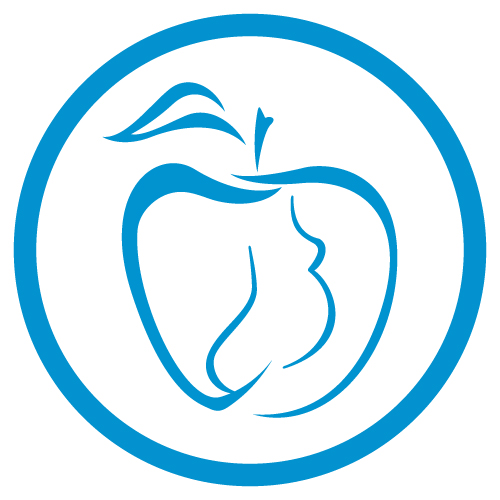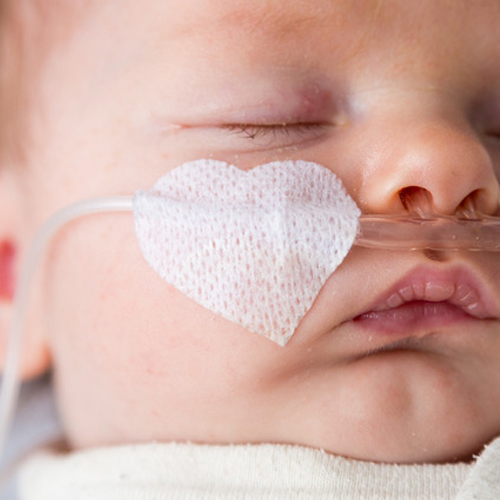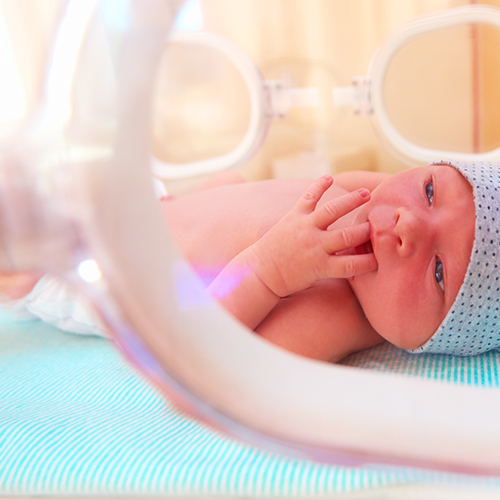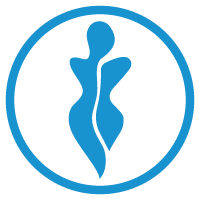 Postpartum Online Course(s) & Continuing Education
Postpartum Online Course(s) & Continuing Education
Access the latest clinical skills and research for Postpartum for Access the latest Pregnancy, Labour & Childbirthprofessional training. These Postpartum online courses provide practice-changing skills and valuable perspectives from leading global experts. This Postpartum education has been accredited for a variety of CEUs / CERPs and can be accessed on-demand, at your own pace.
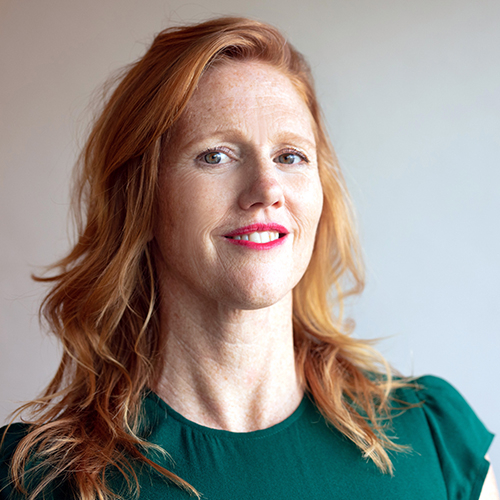

Kimberly is a Sexological Bodyworker, Somatic Experiencing trauma resolution practitioner, Structural Integration practitioner, culture worker, and single mom. She specializes in helping women heal from birth injuries, gynecological procedures and sexual boundary ruptures. She is the author of the early mothering classic The Fourth Trimester: Healing Your Body, Balancing Your Emotions and Restoring Your Vitality and Call of the Wild: How We Heal Trauma, Awaken Our Own Power and Use It for Good- a feminist nervous system treatise, as well as the newly released Reckoning, co-authored with Stephen Jenkinson. She is the host of the Sex Birth Trauma podcast.
Somatic Experiencing is a body-oriented therapeutic model that supports the regulation of the autonomic nervous system. Reframe your approach to the fourth trimester by learning how to work with your client’s physiology to promote healing. Learn more about the four domains of health that influence the postpartum experience, the five cross-cultural universal postpartum needs and the five channels of inner and outer experience, as a tool to help clients get out of looping cycles of shame and blame.
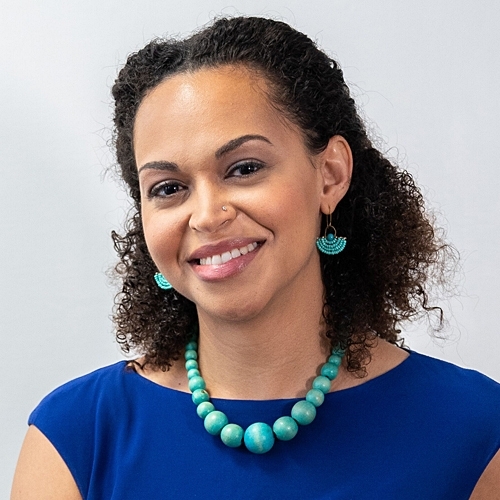
Can Broths and Baths Help the Baby Blues? Where Indigenous Wisdom Meets Functional Medicine

Ihotu Jennifer Ali, MPH, LMT, CLC (she/her) is a doula, public health educator, researcher, and integrative massage therapist specializing in myofascial release therapies including the Arvigo Techniques of Maya Abdominal Therapy®, Craniosacral Therapy, Prenatal, and Infant Massage as a Spinning Babies Aware Practitioner®. She is founder and owner of Black Moon Bodywork, LLC which offers massage therapy blended with health coaching in integrative and indigenous practices to support hormone balance, digestion, sexual and reproductive health, and reproductive justice.
Ihotu’s decade of experience in femme and family health includes years as a DONA certified birth doula and lactation counselor, prenatal yoga teacher and dancer, rape crisis counselor, Institute for Integrative Nutrition coach, and director of pre-conception health programs funded by the March of Dimes. She has collaborated with midwives and physicians in Haiti, Nigeria, Congo, and Morocco, and worked in health policy and research with the U.S. Congress, Clinton Foundation, United Nations Millennium Development Goals, and Columbia University’s School of Public Health. Raised between Minnesota, New York City, and West Africa with respect for both indigenous and evidence-based medicine, Ihotu strives to offer innovative care that is affordable, consent- and trauma-informed, gender fluid and ancestrally rooted. Her writing, public speaking, and coaching brings together emerging science in hormones and gut-brain health, functional medicine, Reproductive Justice and Afrofuturism movements. She offers an intercultural commentary on the busy modern lifestyles, social pressures, and unresolved trauma often at the root of today’s chronic health conditions.
Indigenous practices around pregnancy, birth and postpartum have become wildly popular, and some even controversial, from rebozo belly sifting and Bengkung binding to herbal massage oils and vaginal steams. This presentation will dive deeper to explore the theories and assumptions behind certain lineages of indigenous postpartum care (Traditional Chinese Medicine, Mayan and Nigerian), their analysis of the postpartum body as in a “cold state,” and common warming foods and practices. We will also look at the theories behind functional medicine and compare the two perspectives – both ancient and emerging science - in their common view of the postpartum body as being in a depleted state in need of nourishment.
Given the lack of standard postpartum care and the high rates of postpartum depression and mood disorders, a family-oriented and public health approach is proposed here, at the intersection of both indigenous and functional medicine. Both early research and generational wisdom suggest that integrative postpartum care focusing on regular warm broths and baths, anti-inflammatory foods, and nourishing the hormonal, digestive and circulatory systems can relieve new parents’ swelling, joint pain, constipation, hot flashes, energy and mood, especially for those with health conditions, after a difficult pregnancy, or a long or traumatic birth.
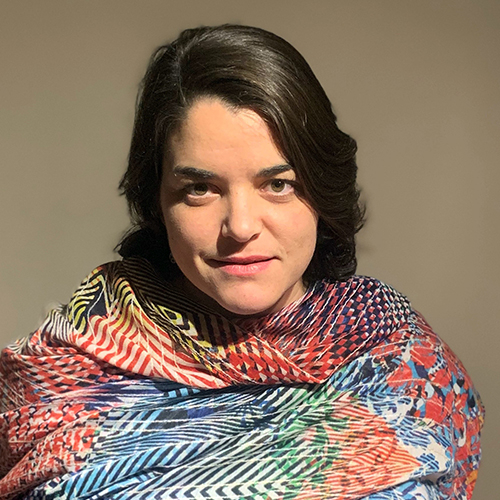
Clinical Assessment and Management of Jaundice in the Newborn

Mariana Colmenares Castano was born in Mexico City, and from an early age she was fascinated by animals and nature.She studied medicine at the National University of Mexico (UNAM), and foundher passion as a pediatrician doing her residency at the National Pediatric Institute. When her first child was born she witnessed the lack of knowledge and commitment to breastfeeding within the medical profession, and so she decided to specialize in breastfeeding medicine. She certified as a Lactation Consultant (IBCLC) in 2011.Mariana is a member of the International Lactation Consultant Association, the Academy of Breastfeeding Medicine, and a proud founding member of the National Lactation Consultant Association of Mexico (ACCLAM), where she served on the Board of Directors as Education Coordinator (2014-2019). She is part of board director for the Academy of Breastfeeding Medicine for a 3 year period (2019-2022) and recently named as secretary for the Academy of Breastfeeding Medicine. Mariana is a member of the team for Breastfeeding Country Index BFCI, a project from Yale University and Universidad Iberoamericana. She is consultant for the National Health Institute in Mexico and has collaborated with UNICEF in breastfeeding projects and part of the steering committee for the WHO. She has spoken at national and international conferences, co-published numerous articles and co-authored a chapter for the National Academy of Medicine. At the moment she is a Clinical Fellow in Community Paediatrics in London.
Topic: Breastfeeding The Baby With Congenital Heart Disease - [View Abstract]
Topic: Breastfeeding with Insufficient Glandular Tissue - [View Abstract]
Topic: Clinical Assessment and Management of Jaundice in the Newborn - [View Abstract]
Topic: Oral Colostrum Care as an Immunological Intervention in the NICU - [View Abstract]
The yellow colour on the skin and eyes in the newborn is called newborn jaundice, which is common and usually harmless. It develops often 2 days after birth and it must be ruled out during the newborn physical examination. However, in a small number of babies, being jaundiced can be due to a more serious underlying condition that needs to be assessed and urgently determined if treatment is needed as there could be a risk for brain damage. An early assessment and adequate support to the family is crucial to protect the breastfeeding dyad. Learn more about the risk factors and clinical features observed with neonatal jaundice and the current guidelines for treatment.
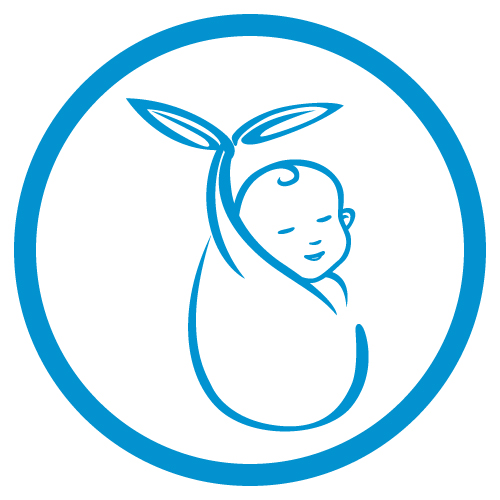
View Details / Enroll
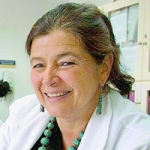
Kangaroo Mother Care Now and Then: 30 Years of KMC Clinical and Research Experience in a Developing Country

Dr Nathalie Charpak is currently the scientific coordinator and an attending paediatrician at the Kangaroo Mother Care program of the San Ignacio University Hospital. In addition, she is a founding member, senior researcher and director of the “Fundacion Canguro” in Bogotá, Colombia since 1994. Dr Charpak received her M.D. from the “Paris Sud” University and her paediatrician diploma from “Rene Descartes” University in Paris, France. She migrated in 1986 to Colombia where she validated her title as Paediatrician and begin in 1989 to work on the evaluation of the Kangaroo Mother Care (KMC) program. She is now a Colombian citizen. With several colleagues she founded in 1994 the “Fundacion Canguro” in Bogotá, an NGO devoted to research, teaching, training and direct medical care related to KMC method for premature infants that besides conducting large clinical trials on KMC has been actively disseminating the method mainly in low and middle income countries in Latin America, South East Asia, India, Africa and Eastern Europe. In 1996 in Trieste Italy she was among the group of international researchers, physicians and nurses who founded the International Kangaroo Network -INK- an international alliance devoted to collaborating, enhancing and disseminating the KMC method. Dr Charpak continues to work as an attending paediatrician in the KMC program and his current research interest is in integrative methods for summarizing and putting into action what is known about KMC in the form of evidence-based clinical practice guidelines. She is also recently involved as coordinator in conducting evaluations of long term (adolescents and young adults) neurodevelopment outcomes in preterm infants exposed or not exposed to KMC during the neonatal period.
The Kangaroo Mother Care (KMC) Method is primarily targeting the preterm and/or LBW infants once they are stabilized and adapted to extra-uterine life. KMC has three mayor components: kangaroo position (KP) or direct skin-to-skin contact between the mother and the baby; the kangaroo nutrition (KN) based on exclusive breastfeeding and the kangaroo discharge policies: early discharge in KP at home or in a KMC ward under strict follow up. KMC is a tool for humanization at all levels of neonatal care. There is sound scientific evidence for the effectiveness and safety of KMC in terms of mortality, early infectious morbidity, development, promotion and maintenance of breastfeeding. Also, there is evidence for the beneficial effects of KMC on establishing healthy bonding between mothers and infants. Many health professionals consider KMC as a means of protecting the immature brain when it is the most fragile and the results of our long term follow up are supporting this hypothesis.

View Details / Enroll
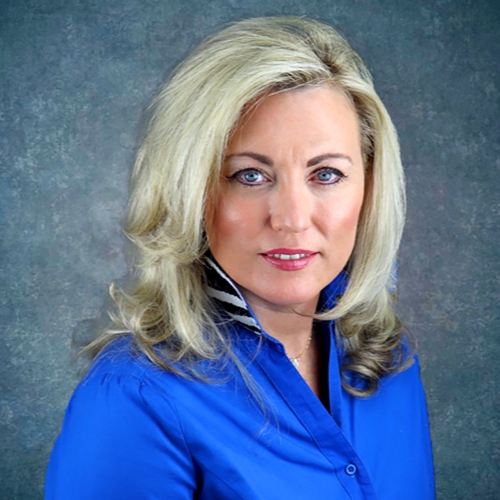
Module 1 - Obtaining a Complete Neonatal History

Dr. Leigh Ann Cates-McGlinn's academic qualifications include a Doctor of Philosophy (PhD) from The Graduate School of Biomedical Sciences at the University of Texas Medical Branch Galveston, Texas, Master of Science in Nursing (MSN) from The Medical University of South Carolina, Charleston, SC, an Associates in Applied Science (AAS) - Nursing and Respiratory Care each from Odessa College in Odessa, Texas. She maintains national certification as a Neonatal Nurse Practitioner (NNP-BC) and registered respiratory therapist (RRT) and is recognized by North Carolina Board of Nurse Examiners as a Registered Nurse (RN) and Advanced Practice Registered Nurse (APRN). Dr. Cates-McGlinn also holds a subspecialty certification in pediatric and neonatal respiratory care (NPS) and is certified as a healthcare simulation educator (CHSE). She has over 25 years of clinical experience; over 11 years are as neonatal nurse practitioner (NNP). Academically, she has taught over 11 years in NNP programs across the country. Dr. Cates-McGlinn specializes in research, presentations, workshops, and courses using hi-fidelity simulation and neonatal procedure labs. She is recently published and serves as reviewer for multiple healthcare journals. For more information please visit http://leighannmcglinn.myefolio.com
Topic: Module 10 - Genitourinary Assessment - [View Abstract]
Topic: Module 2 - Assessment of Gestational Age - [View Abstract]
Topic: Module 3 - Integumentary Assessment - [View Abstract]
Topic: Module 4 - Neurological Assessment - [View Abstract]
Topic: Module 5 - Musculoskeletal Assessment - [View Abstract]
Topic: Module 6 - Assessment of the Head, Eyes, Ears, Nose and Throat (HEENT) - [View Abstract]
Topic: Module 7 - Respiratory Assessment - [View Abstract]
Topic: Module 8 - Cardiovascular Assessment - [View Abstract]
Topic: Module 9 - Abdominal Assessment - [View Abstract]
A complete neonatal history is vital to aiding the provider in the development of an accurate plan of care. It also serves as a tool to evaluate for real or potential issues or complications. In this module we will discuss the significance and timing of gathering a history, the primary features included in a neonatal history and will lay the foundations for the development of a differential diagnosis or initial impression.

Module 10 - Genitourinary Assessment

Dr. Leigh Ann Cates-McGlinn's academic qualifications include a Doctor of Philosophy (PhD) from The Graduate School of Biomedical Sciences at the University of Texas Medical Branch Galveston, Texas, Master of Science in Nursing (MSN) from The Medical University of South Carolina, Charleston, SC, an Associates in Applied Science (AAS) - Nursing and Respiratory Care each from Odessa College in Odessa, Texas. She maintains national certification as a Neonatal Nurse Practitioner (NNP-BC) and registered respiratory therapist (RRT) and is recognized by North Carolina Board of Nurse Examiners as a Registered Nurse (RN) and Advanced Practice Registered Nurse (APRN). Dr. Cates-McGlinn also holds a subspecialty certification in pediatric and neonatal respiratory care (NPS) and is certified as a healthcare simulation educator (CHSE). She has over 25 years of clinical experience; over 11 years are as neonatal nurse practitioner (NNP). Academically, she has taught over 11 years in NNP programs across the country. Dr. Cates-McGlinn specializes in research, presentations, workshops, and courses using hi-fidelity simulation and neonatal procedure labs. She is recently published and serves as reviewer for multiple healthcare journals. For more information please visit http://leighannmcglinn.myefolio.com
Topic: Module 10 - Genitourinary Assessment - [View Abstract]
Topic: Module 2 - Assessment of Gestational Age - [View Abstract]
Topic: Module 3 - Integumentary Assessment - [View Abstract]
Topic: Module 4 - Neurological Assessment - [View Abstract]
Topic: Module 5 - Musculoskeletal Assessment - [View Abstract]
Topic: Module 6 - Assessment of the Head, Eyes, Ears, Nose and Throat (HEENT) - [View Abstract]
Topic: Module 7 - Respiratory Assessment - [View Abstract]
Topic: Module 8 - Cardiovascular Assessment - [View Abstract]
Topic: Module 9 - Abdominal Assessment - [View Abstract]
The genitourinary system is composed of the kidneys, urinary tracts and reproductive organs all of which have similar anatomical structure and embryological development. Variations in this exam can lend clues to the provider of associations to anomalies in other organ systems. In this module we define frequently used genitourinary terminology, explain genitourinary anatomy and physiology, describe the process of a neonatal genitourinary exam, and list common neonatal genitourinary conditions.
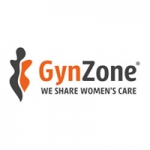

Every woman deserves a capable, functioning body that sparks joy in her life, also in between and after childbirth.
GynZone delivers enhanced training of healthcare professionals, to improve women’s health in childbirth worldwide.
Our training is developed through user-driven innovation with subject matter experts
- We cooperate closely with the best clinicians in the field
- They bring the latest research into clinical practice
- We document and reflect
- We distill their knowledge and know-how
- We forge it into bite-sized instructionals
- We make them available when it suits the learner
Learn more here
Topic: Module 2: Diagnostics - [View Abstract]
Topic: Module 3: Anaesthetics - [View Abstract]
Topic: Module 4: Labia Repair - [View Abstract]
Topic: Module 5: 1st & 2nd Degree Tear - [View Abstract]
Topic: Vaginal Birth - Introduction to SUCCESS Principles for Hands-on Perineal Protection - [View Abstract]
Topic: Waterbirth: An Introduction for Birth Professionals - [View Abstract]
This module provides a thorough introduction to suturing and correct knot-tying techniques. You will learn the basic principles of safe and correct surgical procedure. Follow the step-by-step demonstrations and practice your skills in a safe setting, in order to develop correct routines, clinical confidence and steady hands before handling patients.

Module 2 - Assessment of Gestational Age

Dr. Leigh Ann Cates-McGlinn's academic qualifications include a Doctor of Philosophy (PhD) from The Graduate School of Biomedical Sciences at the University of Texas Medical Branch Galveston, Texas, Master of Science in Nursing (MSN) from The Medical University of South Carolina, Charleston, SC, an Associates in Applied Science (AAS) - Nursing and Respiratory Care each from Odessa College in Odessa, Texas. She maintains national certification as a Neonatal Nurse Practitioner (NNP-BC) and registered respiratory therapist (RRT) and is recognized by North Carolina Board of Nurse Examiners as a Registered Nurse (RN) and Advanced Practice Registered Nurse (APRN). Dr. Cates-McGlinn also holds a subspecialty certification in pediatric and neonatal respiratory care (NPS) and is certified as a healthcare simulation educator (CHSE). She has over 25 years of clinical experience; over 11 years are as neonatal nurse practitioner (NNP). Academically, she has taught over 11 years in NNP programs across the country. Dr. Cates-McGlinn specializes in research, presentations, workshops, and courses using hi-fidelity simulation and neonatal procedure labs. She is recently published and serves as reviewer for multiple healthcare journals. For more information please visit http://leighannmcglinn.myefolio.com
Topic: Module 10 - Genitourinary Assessment - [View Abstract]
Topic: Module 2 - Assessment of Gestational Age - [View Abstract]
Topic: Module 3 - Integumentary Assessment - [View Abstract]
Topic: Module 4 - Neurological Assessment - [View Abstract]
Topic: Module 5 - Musculoskeletal Assessment - [View Abstract]
Topic: Module 6 - Assessment of the Head, Eyes, Ears, Nose and Throat (HEENT) - [View Abstract]
Topic: Module 7 - Respiratory Assessment - [View Abstract]
Topic: Module 8 - Cardiovascular Assessment - [View Abstract]
Topic: Module 9 - Abdominal Assessment - [View Abstract]
An accurate estimation of gestational age is key in planning and providing care for the neonate. Understanding fetal growth patterns and the neonates gestational age help the provider identify and plan for those at risk. Gestational age can help determine morbidity and mortality and direct providers in advising families regarding plan of care. Finally, accurate gestational age determination guides research and application to clinical practice. In this module we define frequently used terminology when discussing gestational age, list the primary features and describe the process of determining gestational age.


Every woman deserves a capable, functioning body that sparks joy in her life, also in between and after childbirth.
GynZone delivers enhanced training of healthcare professionals, to improve women’s health in childbirth worldwide.
Our training is developed through user-driven innovation with subject matter experts
- We cooperate closely with the best clinicians in the field
- They bring the latest research into clinical practice
- We document and reflect
- We distill their knowledge and know-how
- We forge it into bite-sized instructionals
- We make them available when it suits the learner
Learn more here
Topic: Module 2: Diagnostics - [View Abstract]
Topic: Module 3: Anaesthetics - [View Abstract]
Topic: Module 4: Labia Repair - [View Abstract]
Topic: Module 5: 1st & 2nd Degree Tear - [View Abstract]
Topic: Vaginal Birth - Introduction to SUCCESS Principles for Hands-on Perineal Protection - [View Abstract]
Topic: Waterbirth: An Introduction for Birth Professionals - [View Abstract]
This module provides a thorough introduction to the diagnosis of birth lacerations.
You will learn about pelvic floor anatomy and the principles of classification according to professional guidelines.
Emphasis is on optimal conditions for correct diagnosis, and performing a thorough, systematic examination. The medical procedure for diagnosis is demonstrated with animations, medical illustrations and clinical video with patients.

Module 3 - Integumentary Assessment

Dr. Leigh Ann Cates-McGlinn's academic qualifications include a Doctor of Philosophy (PhD) from The Graduate School of Biomedical Sciences at the University of Texas Medical Branch Galveston, Texas, Master of Science in Nursing (MSN) from The Medical University of South Carolina, Charleston, SC, an Associates in Applied Science (AAS) - Nursing and Respiratory Care each from Odessa College in Odessa, Texas. She maintains national certification as a Neonatal Nurse Practitioner (NNP-BC) and registered respiratory therapist (RRT) and is recognized by North Carolina Board of Nurse Examiners as a Registered Nurse (RN) and Advanced Practice Registered Nurse (APRN). Dr. Cates-McGlinn also holds a subspecialty certification in pediatric and neonatal respiratory care (NPS) and is certified as a healthcare simulation educator (CHSE). She has over 25 years of clinical experience; over 11 years are as neonatal nurse practitioner (NNP). Academically, she has taught over 11 years in NNP programs across the country. Dr. Cates-McGlinn specializes in research, presentations, workshops, and courses using hi-fidelity simulation and neonatal procedure labs. She is recently published and serves as reviewer for multiple healthcare journals. For more information please visit http://leighannmcglinn.myefolio.com
Topic: Module 10 - Genitourinary Assessment - [View Abstract]
Topic: Module 2 - Assessment of Gestational Age - [View Abstract]
Topic: Module 3 - Integumentary Assessment - [View Abstract]
Topic: Module 4 - Neurological Assessment - [View Abstract]
Topic: Module 5 - Musculoskeletal Assessment - [View Abstract]
Topic: Module 6 - Assessment of the Head, Eyes, Ears, Nose and Throat (HEENT) - [View Abstract]
Topic: Module 7 - Respiratory Assessment - [View Abstract]
Topic: Module 8 - Cardiovascular Assessment - [View Abstract]
Topic: Module 9 - Abdominal Assessment - [View Abstract]
The skin provides valuable information for the neonatal provider. Through palpation and inspection, a provider can determine the general health including nutrition, organ system function, and expression of systemic or cutaneous disease. The skin also provides important clues for determining gestational age. In this module we define frequently used integumentary terminology, explain integumentary anatomy and physiology, describe the process of a neonatal integumentary exam, and list common neonatal skin variations and lesions.



